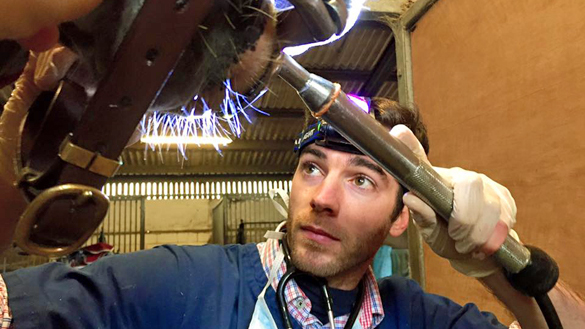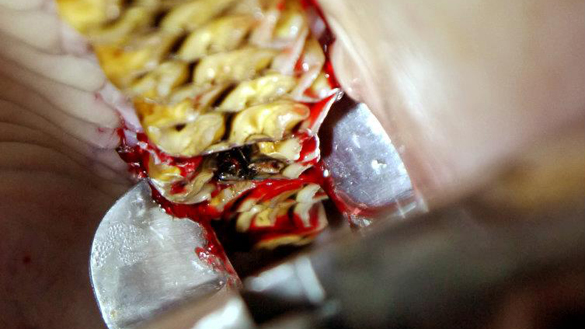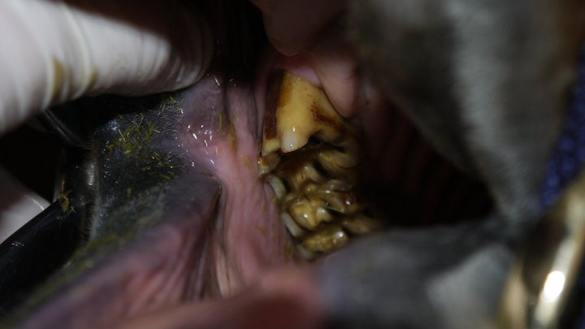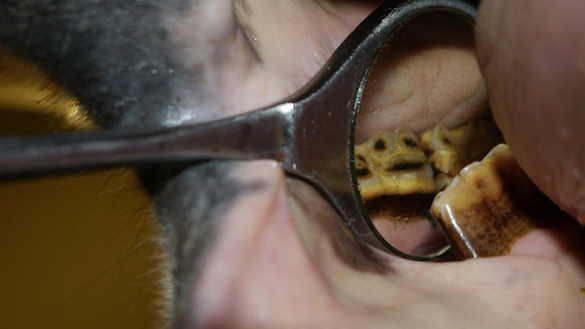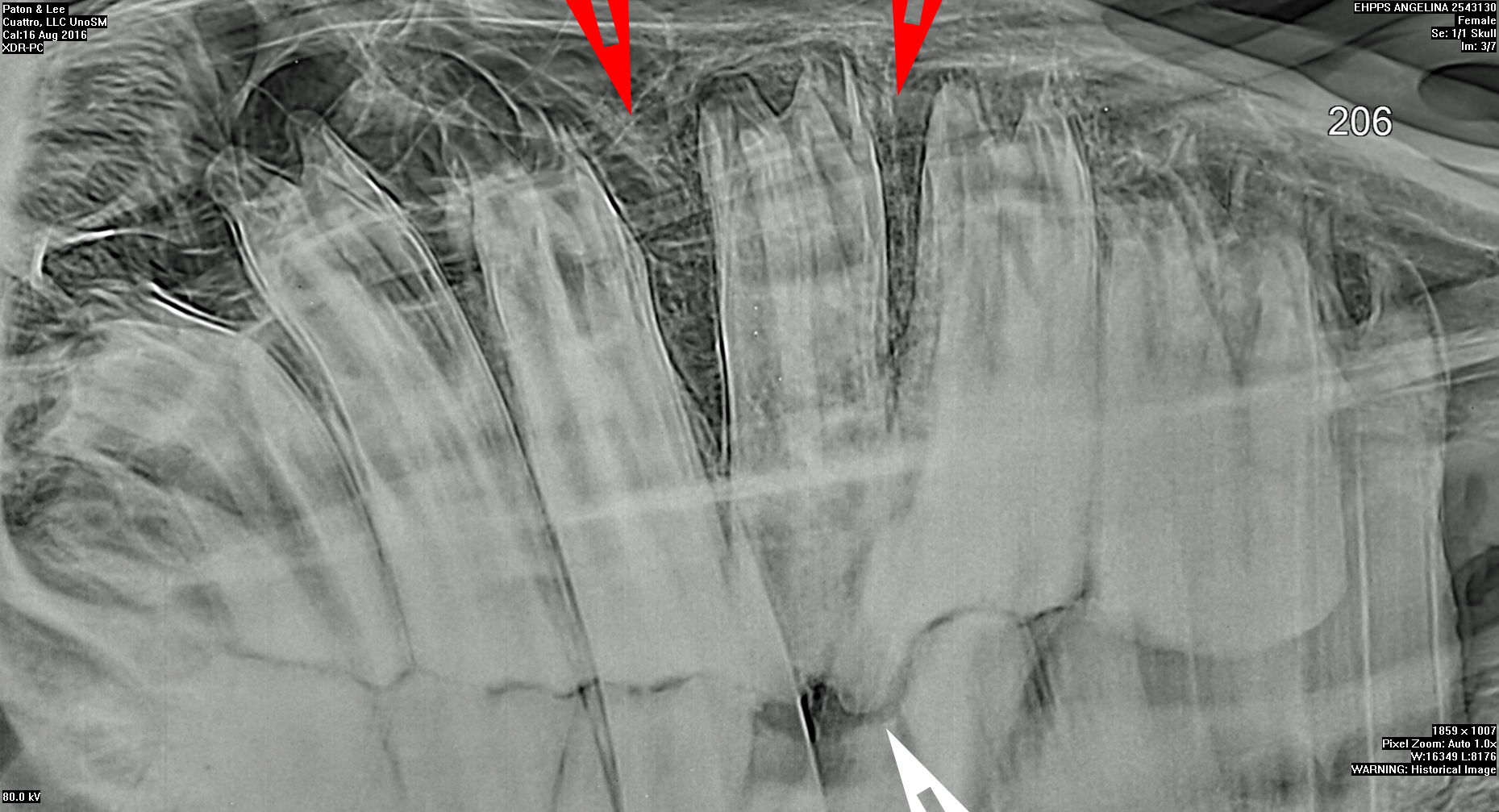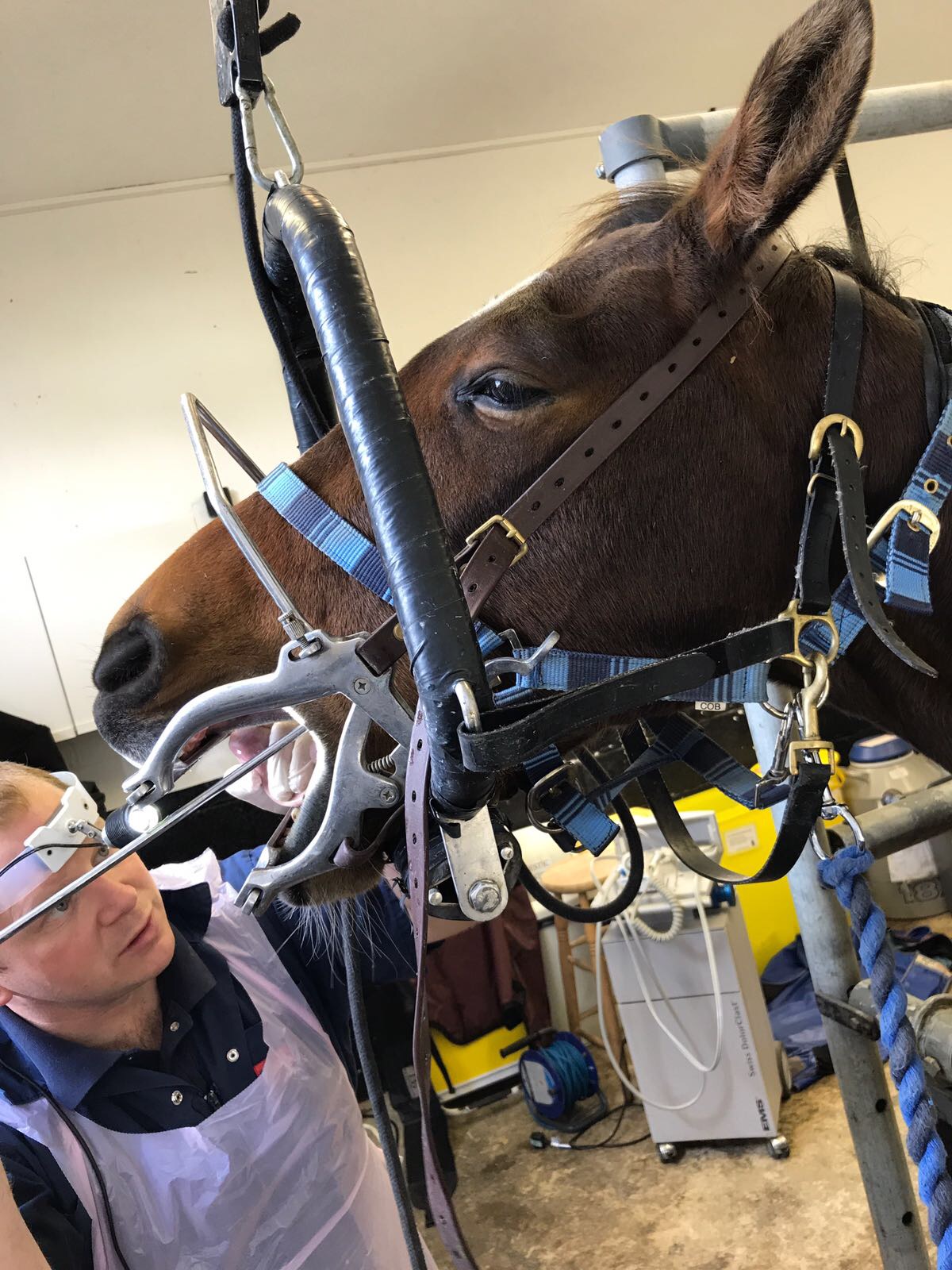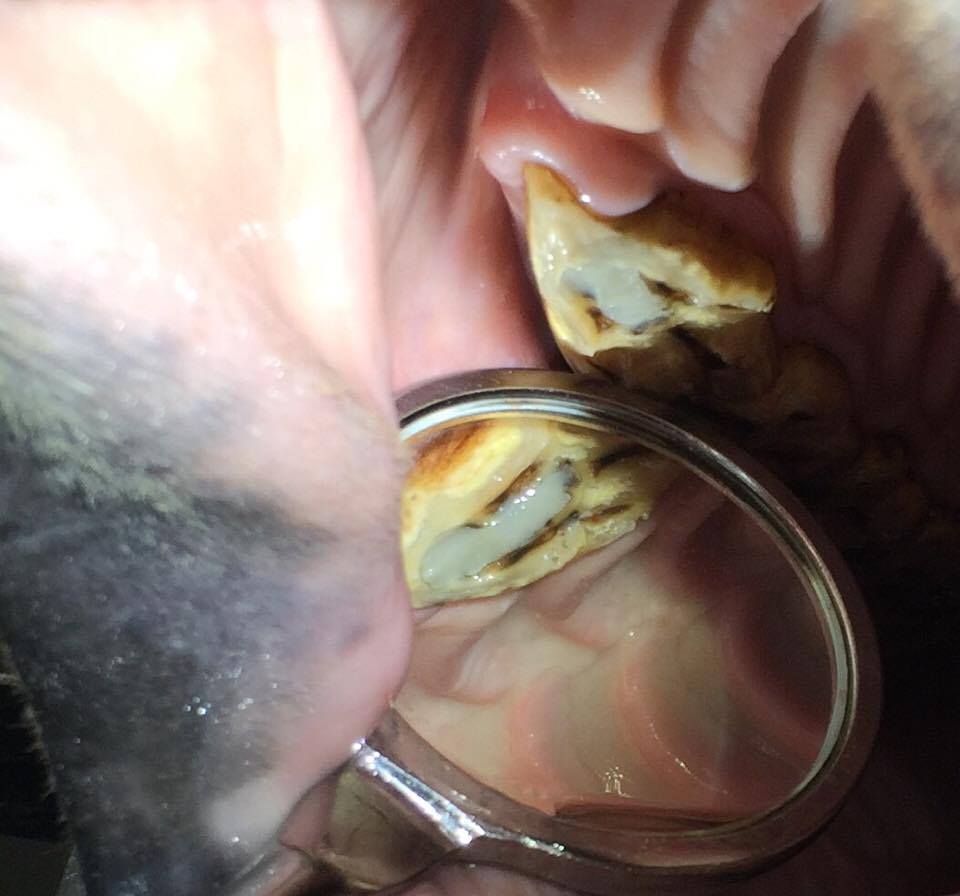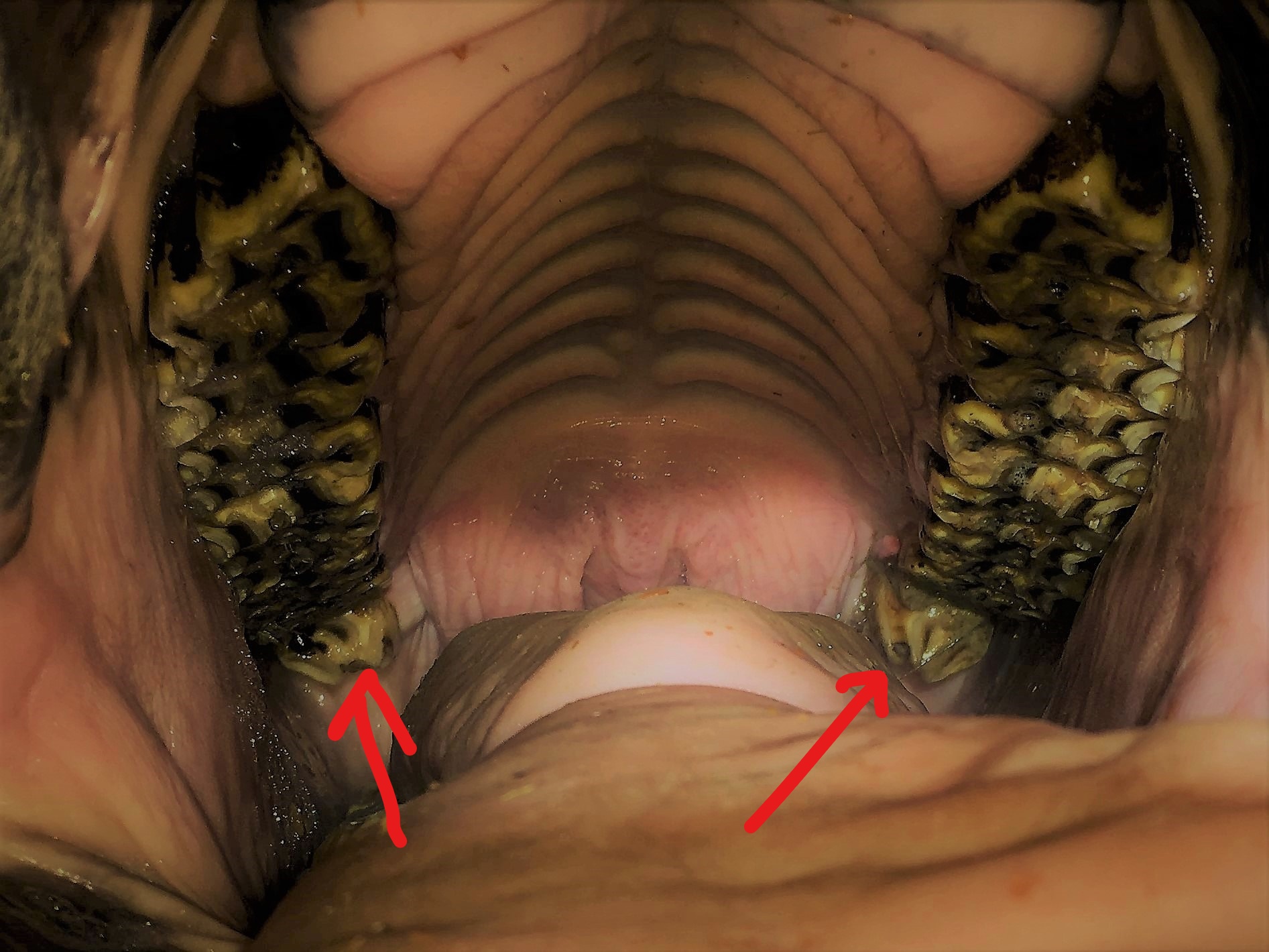Services
Equine Dentistry
Paton and Lee provide a comprehensive equine dental service throughout Essex and Suffolk, from routine dental examinations and assessments, to advanced equine dental surgery and preventative treatment. All of our veterinary surgeons are thoroughly trained and experienced in assessing equine dentition, and carry with them all the equipment required to conduct a thorough dental evaluation at your yard. Most of our clients simply combine their annual vaccinations with an annual dental assessment, therefore minimising their call-out fees.
Our standard price for an equine dental assessment and routine dental prophylaxis (i.e. rasping of sharp enamel points, rostral profiling, reduction of focal dental overgrowths etc) is £75.00 without sedation, or £85.00 if sedation is required (prices correct as of January 2023, including VAT but excluding any visit fee). If a dental assessment is performed and no routine dental treatment is required, the fee is £45 including VAT.
GROUP DISCOUNTS: Where 5 or more horses are being examined on the same yard, no visit fee is charged. Additional discounts are available on request for larger groups of horses - please contact the office for details.
PLEASE NOTE - TO PERFORM A DENTAL ASSESSMENT AT YOUR YARD, WE WILL REQUIRE:
- A SUITABLE STABLE OR ENCLOSED SAFE SPACE TO EXAMINE YOUR HORSE, WITHOUT LOW CEILINGS AND WITH AN EVEN FLOOR - WE WILL NOT PERFORM A DENTAL ASSESSMENT IN THE MIDDLE OF A MUDDY FIELD!
- A LOOSE FITTING HEADCOLLAR WITH A LEAD ROPE, TO BE PLACED ON YOUR HORSE WHEN THE VET ARRIVES.
- A HANDLER TO HOLD THE HORSE DURING OUR ASSESSMENT - WE STRONGLY ADVISE HANDLERS TO WEAR A RIDING HAT AND SUITABLE PROTECTIVE FOOT-WEAR.
- A BUCKET OF CLEAN WATER.
The Equine Dental Assessment:
A thorough dental examination is vital to allow us to detect and treat dental problems before they become serious. At Paton and Lee, all of our Veterinary Surgeons follow a standard operating procedure for our equine dental assessments:
- We will collect information about your horse - how is she/he eating, performing, when was she/he last checked etc.
- We will examine the outside of your horse's head and jaw for symmetry and any signs of disease or pathology.
- We will examine your horses incisors from the front and side to assess their conformation and any pathology.
- We will thoroughly wash out your horse's mouth to remove loose food material - we need to see your horse's teeth, not what they had for dinner!
- If you horse is nervous or difficult to handle at this stage, we may advise giving a small dose of sedation to allow a safe and thorough examination to be performed.
- We will apply a full-mouth speculum (gag) to open your horse's mouth and examine the cheek teeth.
- We will use a bright light source to visualise your horse's teeth. We will also feel (palpate) all of your horse's teeth.
- We may, additionally, use a dental mirror to allow us to examine the teeth in more detail.
- If we discover any suspicious areas of pathology or disease, we may need to sedate your horse to examine the mouth in more detail and / or advise further diagnostic tests.
- Foal assessments and orthodontic surgery for incisor malalignments (overbite / overjet problems).
- Diastema (gap) widening and periodontal disease treatment.
- Treatment of peripheral cemental caries (cavities).
- Simple and complex tooth extractions under standing sedation (including endoscopically guided extractions of fractured teeth, minimally invasive trephination and repulson (MITR) and minimally invasive transbuccal extractions (MTE)).
- Restoration of infundibular caries in cheek teeth (to help prevent tooth fracture and root infections).
- Restoration of incisor pulpitis and/or apical root infections (to help avoid tooth extraction).
- Surgical treatment of Equine Odontoclastic Tooth Resporption and Hypercementosis (EOTRH).
- Owners should use an Equine Veterinary Surgeon (MRCVS) or a suitably qualified Equine Dental Technician (EDT) to examine, assess and perform routine dentistry on their horse.
- Suitably qualified Equine Dental Technicians are those who are either members of the British Association of Equine Dental Technicians (BAEDT) for which a full training course and entry examinations are required, or the Worldwide Association of Equine Dentistry (WWAED) for which an assessment of practical work is required alongside an entrance examination.
- Paton and Lee will not sedate, or provide oral sedatives, for any horse to be examined and/or treated by an EDT (or horse 'Dentist') who is not a full member of the BAEDT or WWAED. Only horses that are under our care can be provided with any sedatives requested by qualified EDTs.
- Where a horse has been examined by an unqualified horse 'dentist' and requires sedation, Paton and Lee are very happy to work alongside the unqualified 'dentist' to provide appropriate dental care, but we will take on all responsibility for the dental treatment given and we will charge accordingly - we will not sedate horses for unqualified 'dentists' and then allow them to carry out any treatment or give advice.
- Qualified Equine Dental Technicians (BAEDT or WWAED members) are only allowed to perform "Category 1" and "Category 2" Procedures (see below). Any other dental procedures are "Category 3" acts of veterinary surgery, and must be performed by a veterinary surgeon only.
- Paton and Lee encourages any unqualified horse 'dentists' to seek formal training, qualifications and membership of either the BAEDT or WWAED as soon as possible. This is in the interest of raising standards across the board and improving the reputation of horse 'dentists' by ensuring that they are properly trained and performing their work safely and to a high standard.
- CATEGORY 1 PROCEDURES
- Removal of sharp enamel points
- Removal of small dental overgrowths (maximum 4mm reductions)
- Rostral profiling of the first cheek teeth (maximum 4mm reductions), previously termed ‘bit seat shaping’
- Removal of loose deciduous caps
- Removal of supragingival calculus
- CATEGORY 2 PROCEDURES
- Examination, evaluation and recording of dental abnormalities
- The extraction of teeth or dental fragments with negligible periodontal attachment.
- The removal of erupted, non-displaced wolf teeth in the upper or lower jaw under direct and continuous veterinary supervision
- Palliative rasping of fractured and adjacent teeth
- The use of motorised dental instruments where these are used to reduce dental overgrowths and remove sharp enamel points only. Horses should be sedated unless it is deemed safe to undertake any proposed procedure without sedation, with full informed consent of the owner.
- PLEASE NOTE: Veterinary Surgeons undergo at least 5 years of University-level training and are members of the regulated Royal College of Veterinary Surgeons. Veterinary Surgeons are required, after graduation, to continue their training with a minimum of 35 hours per year of additional professional development, for which there are numerous routine and advanced equine dentistry courses available only to qualified Veterinary Surgeons. There is no equivalent standard of qualification and regulation for any Equine Dental Technician, even via the BAEDT or WWAED. If your horse has any dental disease or pathology beyond those Category 1 and 2 exceptions listed above, it can ONLY be diagnosed and treated by a Veterinary Surgeon. If you use a qualified BAEDT or WWAED member to perform routine dentistry on your horse and they discover any dental disease or pathology, they should be happy to refer you to an Equine Veterinary Surgeon so that further diagnostic tests and dental treatment can be performed. At Paton and Lee we are always delighted to hear from good, conscientious EDTs when they see horses that require further dental work, and we are very happy to work alongside any qualified EDTs in an ethical and professional manner to provide the very best care for your horse.
It should not be a great source of pride to be able to rasp a horse's teeth without using sedation. We will always handle your horse as quietly and calmly as possible to avoid unneccesary stress or alarm, but if sedation is required to perform a thorough and safe dental examination, we will advise giving it. It is cheap, safe, easy to give, quick to work and allows us to do a proper job of examining your horse's teeth without upsetting your horse or risking injury. If your horse has dental pathology and requires a full dental assessment with a dental mirror or endoscope, sedation will certainly be necessary.
A COMMON MYTH: There is an idea among some horse owners that because you go to a human dentist if you have dental problems yourself, so your horse should only go to a 'horse dentist' if it has dental problems, rather than a veterinary surgeon. This is simply wrong. There is no 'horse dentist' qualification equivalent to the years of training and studying that a human dentist has. In fact, many people calling themselves 'horse dentists' are not even properly qualified as Equine Dental Technicians, and thus have no qualifications whatsoever. According to the BAEDT's own website, some of these so-called 'horse dentists' are "very inexperienced with minimal training, but nevertheless perform very advanced dental procedures, sometimes damaging equine teeth. On some occasions they cause serious, even life-threatening injuries to horses’ jaws, mouths and throats."
REMEMBER: Always use an Equine Veterinary Surgeon or a qualified Equine Dental Technician for your horse's teeth.
If you have any questions about equine dentistry or your horse's teeth, please do not hesitate to call us at any time on 01376 513369.
Further details on the British Association of Equine Dental Technicians, including a list of their members, is available at: http://www.baedt.com
Further details on the Worldwide Association of Equine Dentists, including a list of their members, is available at: http://wwaed.org.uk/
The British Equine Veterinary Association publish a guide to Caring For Your Horse's Teeth which is available HERE.

